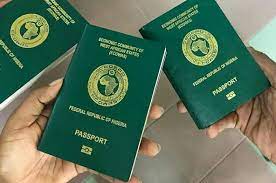
In a significant development that transpired last night, authoritative sources have confirmed that the proposed removal of the petrol subsidy in Nigeria will not be implemented immediately as previously stated. This news serves as a contradiction to President Bola Ahmed Tinubu’s statement in his inauguration speech on Monday, wherein he proclaimed that the petrol subsidy was a thing of the past, considering it wasn’t included in the 2023 budget.
However, recent sources have disclosed that the rollout of the petrol subsidy removal will actually begin after June. This decision, it has been revealed, was made following the President’s meeting with key stakeholders – the Governor of the Central Bank of Nigeria (CBN), and the Group Chief Executive Officer of the Nigerian National Petroleum Company Limited (NNPCL), Mr. Mele Kyari. The meeting took place at the Presidential Villa, Abuja, yesterday.
The underlying purpose of this gathering was to brainstorm on the best strategy to communicate with labor stakeholders to ensure a smooth transition during the petrol subsidy removal. One crucial outcome from the meeting was the decision for NNPCL to establish a framework that would prevent the importation of harmful fuel into the country, while also setting a standard for price.
This clarification comes amidst the widespread scarcity of petrol that severely hampered activities in major Nigerian cities yesterday. Many petrol stations saw long queues as fuel hoarding by marketers led to skyrocketing prices of up to N600 per litre, and as a consequence, transportation fares also spiked.
From the South-West to the South-East, South-South to North-West and other zones of the country, there were stories of distress as the fuel crisis intensified.
On the following day, President Bola Tinubu commenced his official duties with a meeting at Aso Rock with the Governor of the CBN, Mr. Godwin Emefiele, and the Group CEO of NNPCL, Mr. Mele Kyari. This marked the President’s first official duty after his inauguration as the 16th president of the country at Eagle Square, Abuja.
The President arrived at the State House around 2:30 pm and was received by several dignitaries, including the Vice President, Senator Kashim Shettima, the Permanent Secretary, State House, Tijjani Umar, Speaker of the House of Representatives, Femi Gbajabiamila, and the out-going Director of Protocol, among others.
Though the specific agenda of the meeting remains undisclosed, it is speculated that the removal of fuel subsidies and the subsequent fuel scarcity were primary points of discussion. Other matters such as the unification of foreign exchange and the recent redesign of the Naira were also reportedly discussed.
NNPCL, the entity at the heart of this development, has shown support for the removal of the petrol subsidy. The Group CEO, Mele Kyari, stated in Abuja that the petrol subsidy has been a significant burden on the company’s cash flow. He revealed that the Federal Government owes the company N2.8 trillion for the petrol subsidy payments. It’s worth noting that former President Muhammadu Buhari had burdened NNPC Limited with the subsidy payments, leading the company to bear the cost as petrol under-recovery in its books.
However, Kyari expressed optimism about the subsidy removal, believing it would liberate resources for the NNPC to continue its operations. He assured consumers that NNPC has sufficient petrol stocks and discouraged panic-buying due to the imminent pump price changes.
Similarly, the Chief Executive of the Nigerian Mainstream and Downstream Regulatory Authority, Faruk Ahmed, agreed that with the petrol subsidy removal, there would be no price cap on petroleum products’ sale in the country. He affirmed that President Tinubu’s announcement on the subsidy removal during his inaugural speech was in accordance with the law. Further adding that the Federal Government hasn’t financed subsidies since 2022, as the reality is that the government can’t afford it.












